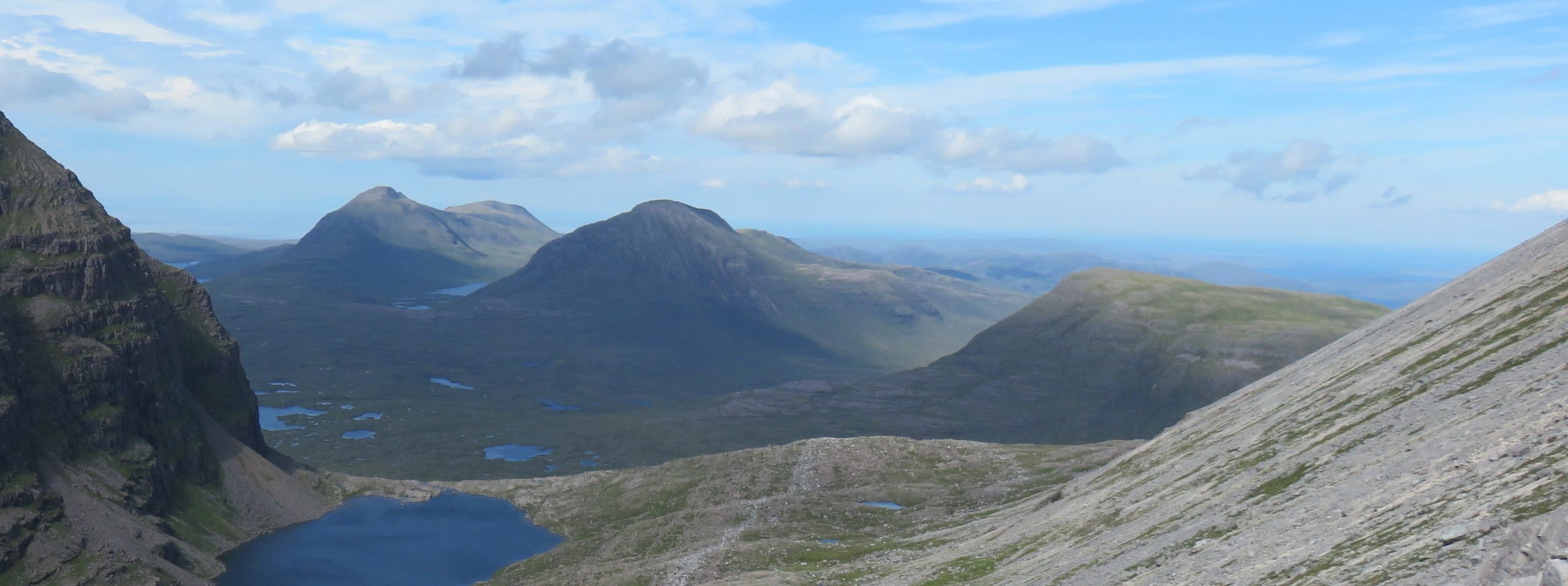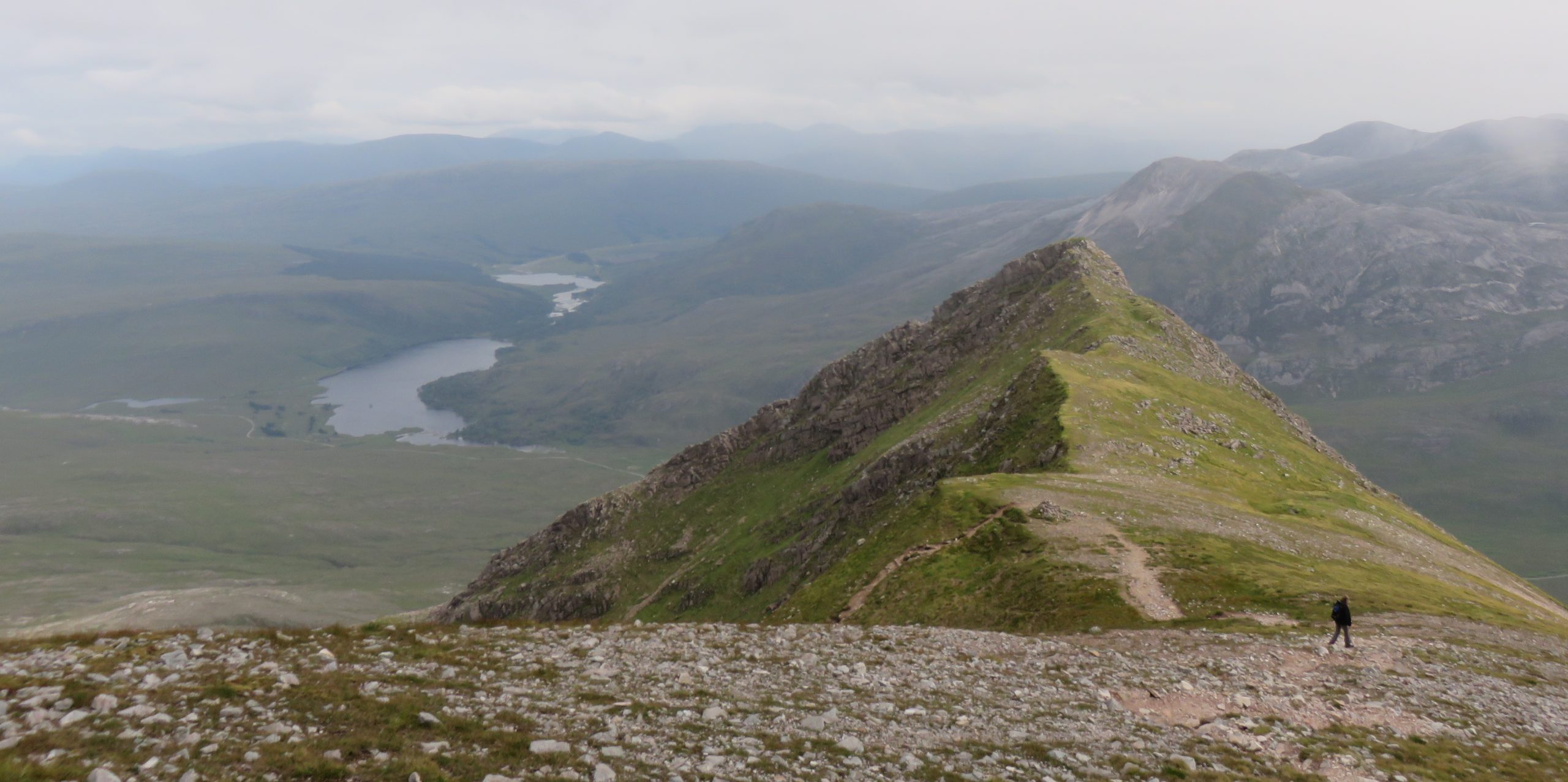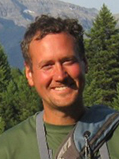
Why should we explore the world? According to Jonathan Moo, a Biblical scholar who is currently based at the Faraday Institute, creation is not just valuable for what we get from it. In today’s podcast (transcript below) he explains why he believes the living world is valuable in itself. He also shares why he does not lose hope in the face of environmental problems – including yesterday’s US election result.
Today I am at the Faraday Institute with one of our visiting scholars, Jonathan Moo. You’ve been here before when you were a Research Associate when you were doing your PhD?
That’s correct, yes. At the end of my PhD, and then for several years afterwards, I worked with Bob White and Hilary Marlow.
We’re glad you’re here again! What brought you back?
I have a sabbatical year from where I teach in Spokane, Washington, and my wife is working on a master’s degree in London. So I had the opportunity to have a visiting scholar’s position here at Faraday, starting on a new project I’m working on – a theology of limits. I don’t know where it’s going to go yet, but there are lots of intriguing possibilities and I’m also working on a commentary on Revelation at the same time.
So you’re teaching theology in the US, and do you just want to tell us just a little bit more broadly about what you’re working on?
I teach at a place called Whitworth University in Spokane Washington, and I have the best job in the world because I get to teach on the Christian scriptures. I get to teach New Testament, I teach Greek to help students learn to read scriptures and other early Greek texts better, and I also teach environmental studies. So I get to take people out into the mountains and think about how – especially – we view the world of God’s creation through the lens of Christian faith.
That sounds just so idyllic!
It is, much of the time.
On this blog we look at the wonders of the living world. Obviously from what you say you’re interested in those things as well, and one of the questions I wanted to ask you is what do you think is the ultimate purpose of the living world? You spend time enjoying it, you’re teaching about it, but what do you think it’s for?
Well that’s a good question because there’s been times where – and perhaps it’s hard to fault – actually we just think it’s for us. We tend inevitably to see the world through the lens of ourselves, and so we think “Well the world’s made for us”. Obviously it serves us in all sorts of ways, it brings us joy, it sustains us, but the striking thing in my study of the Christian scriptures is that right from the beginning of the Bible to the end, creation is never said to be for us. It is always for God and for his glory, and in the New Testament for Christ and for his glory. I think that’s actually a helpful way of resituating the way we see ourselves in the world, that we aren’t in the centre but God is at the centre. That’s going to rearrange the way we see our relationships with each other, with God, and with the rest of creation too.
Can you just give us a little bit of insight into where you get that from Biblically?
It comes several times in the Hebrew Bible, especially in the Psalms. In the New Testament it comes most clearly in Hebrews where it says that the world exists for God. Colossians 1, where you have the magnificent celebration of Christ as creator, says that all things exist for him: for Christ. There’s one other place in Revelation, where I love the old King James version translation of it. At the end of chapter four when it talks about all things existing, I think the King James translation was something like “for God’s pleasure”. It’s obscured in some recent translations but it’s a great way of actually describing why all things exist. It’s because God decided to create them out of his free grace, and so it exists for his pleasure, for his glory.
So in a sense, is there some kind of Biblical imperative to explore the world?
I like to think there is, just because I like to explore the world! But I think there is in a way. One of my best friends is a biologist, and he goes right back to what’s sometimes called the dominion mandate in Genesis 1, that gives human beings particular rule over other animals. He says, “If I’m meant to be in some sense a ruler over other creatures and to have this profound responsibility then I need to understand something about this world of which I’m a part, and understand these creatures”. So for him that’s a reason to explore the world in a very precise way as a biologist, through science. I think he’s right about that. I think it does give us a reason to understand the world of which we are a part.
I think in addition to that mandate to rule over other creatures (and I would again want to interpret that through the lens of care and stewardship as Genesis begins to do for us), there also is an invitation to join in the praise that all of creation offers God by being itself. This is something that occurs throughout the Psalms, and becomes prominent again in the book of Revelation. We see it, for example, in Psalm 104 – Gods delight in this world that belongs to him. “The earth is the Lord’s and the fullness thereof.” He delights in this world, and you get the sense that the Psalmist also does in describing the wonders of creation. I think in seeing God’s wonder in creation there actually is an invitation to enter into that: to study the world, to explore it, to recognise that this is God’s good world of which we are a part. So we have not only permission, but almost ought to explore it and come to know something of it.
That makes me want to get back in the lab!
Or get back outside!
As we explore the world, what do you think we can learn from doing that?
Well one of the things I suppose is that we learn much more about how the world works, and so we actually are enabled in that to better rule over other creatures and to better steward creation. We can’t care for things that we don’t understand, or that we don’t know. We can’t care for our brothers and sisters around the world if we don’t know the world of which they are a part as well. So the science helps us understand the world, both for its own sake and for the sake of our fellow human beings.
There’s a way in which, if this world is God’s creation and can testify to him and brings him glory (as the Psalms, Revelation, and the whole of scripture tells us), we are actually learning something about God’s world. We wouldn’t want to suggest that we could do that study and work our way up to some picture of God – that would become easily idolatrous. It’s rather that as Christians we look at the world through the lens of faith, and through the lens of scripture. We are invited to go out and explore and to learn something more about ‘God’s book of nature’, alongside the book of scripture.
I think, too, that there is a place – and this is obviously the focus I think of what you’ve been writing – that by exploring and understanding the world better we are actually drawn deeper into mystery and into wonder. I think for Christians, mystery isn’t dependent upon a lack of knowledge. The more we get to know about the world the more we get to know about God, and certainly also the more we recognise we still don’t know – so there’s that side of it. But there’s also this sheer awe and wonder at this world that God has created in all of its beauty and sometimes all of its terror. I think that we actually are drawn deeper into that mystery and wonder by studying the world. So I would hope that Christians who are going into science would not see their study as something that is making that world of wonder smaller and smaller, but actually is deepening it and broadening it. Then they would be able to share that with others too. I know you work a lot with schools, for example. One of my passions is to see schoolchildren, and in my case university students, just opened up to the wonder of what science can do in terms of speaking to our souls in a particular way.

Personally I find, particularly in tumultuous times (and today has been a somewhat difficult day which I think we’ll come on to talk about perhaps in a minute), there’s a way in which seeing the world of God’s creation and its rhythms of life, the way that God has made it, and the way that it testifies to God’s glory, can actually remind me of who God is. It can remind me of my smallness, how insignificant I am, how insignificant the machinations of the world’s elite, of politics and economics, actually are in the big scheme of things of God’s kingdom. I can also be reminded of the miracle of the fact that God does actually care about me and about you and about this world. So there’s a way in which I find deep comfort and solace in the world of God’s creation too.
Yes that can speak to us very loudly, or in a very quiet but important way. So we’re having this conversation on the 9th of November 2016, we’ve just had a pretty shocking election result in the US, and obviously we’re thinking of the impact that might have on the planet. So having had a bit of time to take this in, Jonathan where do you find hope in this situation as a Christian?
That’s a good question Ruth. Obviously the election result is that Trump has been named as the President elect in the United States, which is quite a shocking result, and whatever else we think about that from a strictly environmental view it seems pretty awful. So if all of my hope were placed in having a particular president in power in the United States or a particular political system in place, I would be feeling pretty desperate today. There was also an initiative in my home state of Washington to pass a carbon tax, which doesn’t look like it has passed and I was very disappointed about it. I was very hopeful it could be a model for the rest of the world – it was a bipartisan effort.
I’ll be honest, I have been distressed and wrestling and anxious a bit since the middle of last night for just those reasons. But it’s also been a good reminder to me that my ultimate hope is not in these political systems, it’s not in any particular organisation that’s working for change however much I might support them, it’s not in myself and what I do, or whatever people who agree with me might do. My ultimate hope is actually in Jesus Christ, and that for me is a hope that encompasses all of creation. The Christian scriptures say that God’s purposes aren’t just for me and for you but for the whole world that he made, and that he remains relentlessly faithful to us and to his creation. God will not finally abandon us. That doesn’t mean we don’t suffer in the meantime the results of our poor decisions, the results of our poor policies, or our poor treatment of the earth. The Christian scriptures and the Hebrew Bible are full of pictures of, in a sense, the land itself and people suffering because of their actions – so it’s not that that isn’t the case and we don’t mourn for that. We continue to work for change. We also are able to persevere in working for change, and working for justice and peace and love in the world as Christians, precisely because we know that it’s God who finally brings about the results.
So we have that sure and certain hope which ought at least to keep us from despair on the one hand – which I know that some people will be tempted to today – and on the other hand from messianic pretensions: the notion that we are the saviours of the world, and that we’re going to do it all ourselves. We need to, as Christians at least, come under again the recognition that we are not the messiah. We are not the lords of the world, we don’t know everything. I’m glad we aren’t the lords of the world, and aren’t the messiah because we would obviously make a right mess of it! So it’s been a good reminder to me to ask the question, where is my hope placed? And then to ask what it means to live that out because it doesn’t mean just sitting back then and saying, “Well God’s got it sorted so I don’t have to worry about it”. It actually means this is the sort of world that God is bringing in in Christ and I’m called to be a part of it, and to testify to that in the present and all that that might involve.
(Photographs © Ruth Bancewicz)
 Dr Jonathan Moo is currently an Associate Professor of New Testament and Environmental Studies in the Theology department at Whitworth University in Spokane, Washington. He researches and teaches in the areas of New Testament, early Judaism, environmental ethics, and science and faith. He was a Research Associate with the Faraday Institute from 2006-2010. Jonathan holds degrees in Biology and English (B.A., Lake Forest College, Illinois), Wildlife Ecology (M.S., Utah State University), and Theology (M.A. Old Testament, M.A. New Testament, Gordon-Conwell Theological Seminary, Massachusetts; Ph.D., University of Cambridge). His most recent books on this topic are Let Creation Rejoice: Biblical Hope and Ecological Crisis. Co-authored with Robert S. White. (InterVarsity, 2014.) [Published in the UK as Hope in an Age of Despair: the Gospel and the Future of Life on Earth. Nottingham, England: Inter-Varsity, 2013.] and As Long as the Earth Endures: the Bible, Creation and the Environment. Co-edited with Robin Routledge. (Apollos, 2014).
Dr Jonathan Moo is currently an Associate Professor of New Testament and Environmental Studies in the Theology department at Whitworth University in Spokane, Washington. He researches and teaches in the areas of New Testament, early Judaism, environmental ethics, and science and faith. He was a Research Associate with the Faraday Institute from 2006-2010. Jonathan holds degrees in Biology and English (B.A., Lake Forest College, Illinois), Wildlife Ecology (M.S., Utah State University), and Theology (M.A. Old Testament, M.A. New Testament, Gordon-Conwell Theological Seminary, Massachusetts; Ph.D., University of Cambridge). His most recent books on this topic are Let Creation Rejoice: Biblical Hope and Ecological Crisis. Co-authored with Robert S. White. (InterVarsity, 2014.) [Published in the UK as Hope in an Age of Despair: the Gospel and the Future of Life on Earth. Nottingham, England: Inter-Varsity, 2013.] and As Long as the Earth Endures: the Bible, Creation and the Environment. Co-edited with Robin Routledge. (Apollos, 2014).



